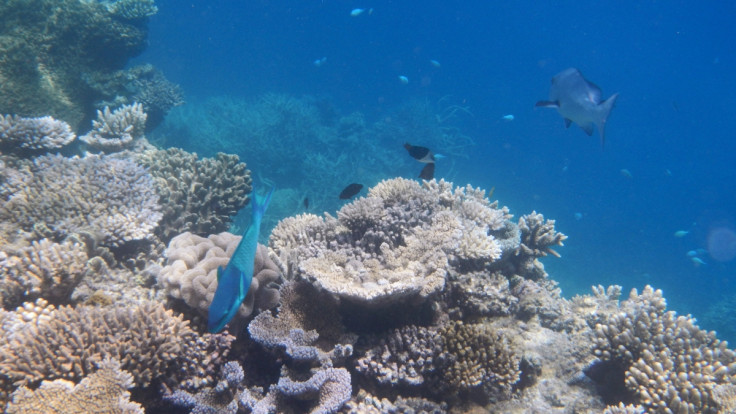Great Barrier Reef risks mass bleaching as coral defences may fail in 40 years

Corals in the Great Barrier Reef currently have a protective mechanism against bleaching. However, a study has found the mechanism is vulnerable to failure as the ocean permanently warms due to climate change. This could lead to mass coral bleaching within 40 years, experts have warned.
Corals have a symbiotic relationship with a photosynthesising algae which provides them with nutrients, oxygen, and their colourful pigment. When the temperature of the ocean rises by around 0.5°C more than average, the algae is stripped away from the coral, causing it to lose its pigment. This means the coral almost ceases to grow as it is not provided with the algae's nutrients. The process is known as coral bleaching.
Corals in the Great Barrier Reef can learn to defend themselves against bleaching by learning from a practice run – a short period when the ocean warms by less than 0.5°C and then cools again. This acts as a warning signal for a potential rise in temperature.
"Corals that undergo smaller stress prior to a bleaching event are able to retain more symbionts within the tissue, those algae which are crucial for nutrition," Tracy Ainsworth, researcher working on the study, told New Scientist. "This has major implications as to whether or not it can survive."
However, researchers say that as corals are exposed to rising ocean temperatures, these practice run events turn into full stress events with no reprieve for recovery.
Researchers from James Cook University, publishing their findings in Science, used 27 years of satellite data to find an average sea surface temperature, as well as information on previous bleaching events, to find the maximum threshold for coral before it becomes vulnerable. They found that coral can withstand temperature changes of less than 0.5°C above average. Past that point, they lose their algae, and are vulnerable to bleaching.
According to future climate projections, the water around the Great Barrier Reef could surpass this temperature change within 40 years. Scott Heron, co-author of the research, said: "In future summers, bleaching events will occur more often and, without the practice run, become even more severe – with a greater risk for coral mortality and a fast decline in coral cover across reefs."
Scientists believe this threat can still be curbed before it escalates. Bill Leggat, researcher working on the study, said: "Our results underscore, once again, the importance of global action to reduce greenhouse gas emissions. We can still have a beautiful reef if people are willing to change behaviour."
© Copyright IBTimes 2025. All rights reserved.






















